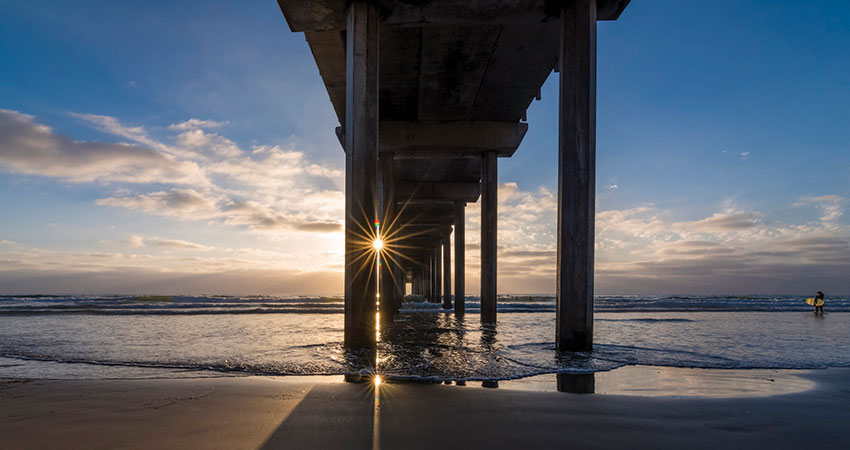
Weekly CASPO Seminar: join us on Zoom every Wednesday at 3:30 pm to hear about the latest and greatest in Climate, Atmospheric Sciences, and Physical Oceanography!
Dr. Emily Lemagie, who received her PhD in physical oceanography from Woods Hole Oceanographic Institution in 2018 and recently started a postdoc at SIO, will present the following talk:
Measuring Coastal Exchange and Heat Flux from Mooring Observations
Studies of exchange flows and heat budgets are effective tools to characterize complex dynamics. In this talk I discuss the ability to capture estuarine-ocean and across-shelf exchange flows and heat transport using moored observation platforms. The primary study case is an investigation of the heat budget and temperature variability over the Oregon inner shelf. I focus on the analysis of summer temperature and velocity measurements from 14 years in 15 meters of water to investigate daily to inter-annual temperature variability and the capacity of the across-shelf heat flux to buffer net surface warming. There was no decadal trend in summer mean temperatures, and little inter-annual variability. The summer mean across-shelf circulation advected relatively warmer water offshore near the surface, cooling the inner shelf and buffering the surface warming. In most years (11 out of 14), this two-dimensional heat budget roughly closed with a residual less than 20% of the leading term. Synoptic temperature variability (on daily to weekly time scales) was predominantly due to the across-shelf heat flux, as there was little synoptic variability in the surface heating and no evidence that an along-shelf heat flux would close the two-dimensional heat budget when the residual was large. The across-shelf heat flux was generally greatest near the surface and bottom boundaries, where the velocity observations were most limited and this source of uncertainty potentially lead to a persistent positive bias in the heat budget residual. These results highlight the importance of collecting near-surface and near-bottom measurements in order to analyze water mass exchange.
Please sign up for the CASPO seminar mailing list in order to receive the zoom link and password prior to the seminar, and to receive information about future seminars.
If you are interested in presenting at a future seminar, or have suggestions for possible speakers, please fill out this form.




